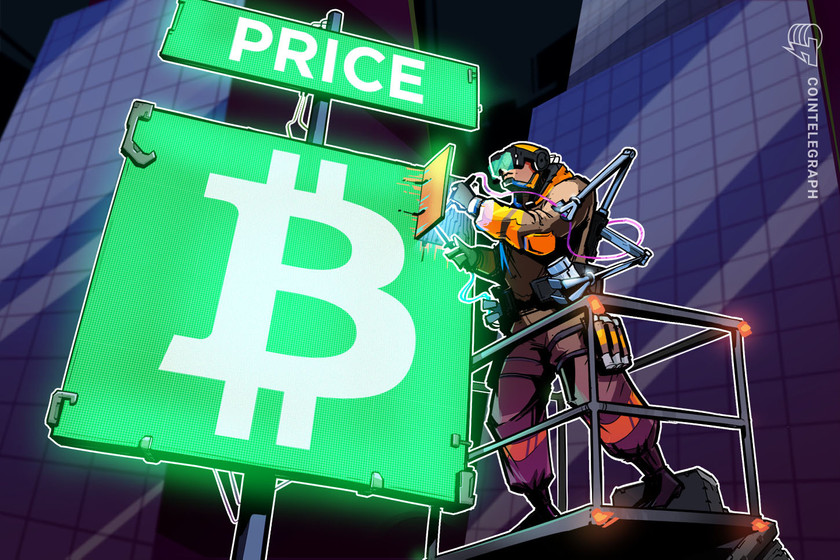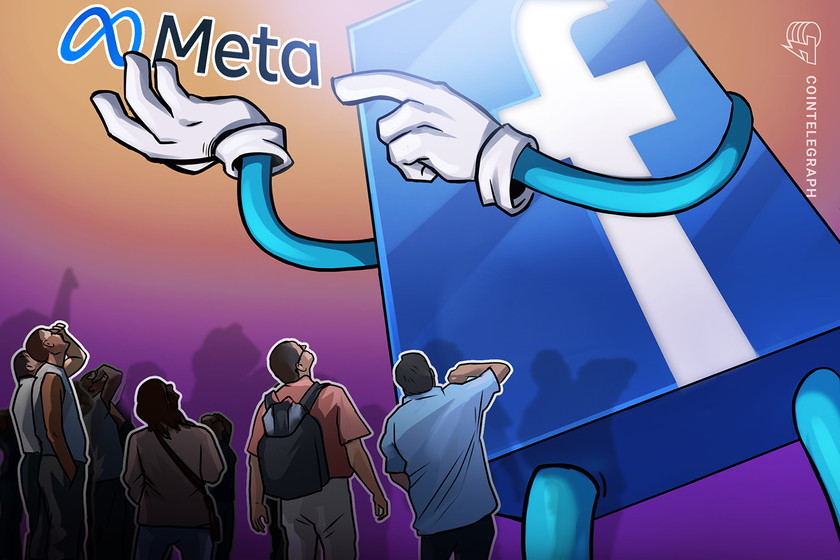Amid the regulatory storm facing Libra, the project’s hierarchy is looking to change one important detail of the payment system: using fiat-pegged stablecoins rather than a token supported by a basket of national currencies. The Libra Association says such considerations are part of efforts to create a more agile payment platform.
Meanwhile, the furor over the controversial Libra has begun to take a more political undertone, both within and outside the United States. Arguments for and against the project now seem to include issues surrounding the trade war between the U.S. and China.
In Europe, China’s response to Facebook’s crypto project (the creation of yuan-pegged digital currency) and Libra itself, have sparked some commentators calling on the European Central Bank to adopt a digital currency for the EU. In some ways, it appears Libra has ignited a new currency war, one that might take place in the digital realm, with several counties floating their own central bank digital currencies (CBDCs).
For Libra, the regulatory hassle might constitute only part of its trouble, as the project could face stiff competition from payment giants, especially in China and other parts of Asia. Some of these payment companies are already identifying Libra as a potential competitor ahead of its launch.
Single Libra token or individual fiat-pegged stablecoins?
As previously reported by Cointelegraph, David Marcus, the co-creator of Libra and head of the Calibra wallet, said the project is open to using various fiat-pegged stablecoins rather than its original idea of creating a token. In its white paper, Libra proposed that its token would be supported by a basket of various national currencies. In a statement shared with Cointelegraph, Dante Disparte, the Libra Association’s head of policy and communications, remarked:
“The Libra Association is committed to pursuing responsible innovation in open collaboration with applicable regulators and stakeholders, to ensure the public interest is always protected and remains at the heart of this project. We have a long launch runway by design and are actively engaged with regulators and policymakers around the world.”
Such a move could change the nature of the project drastically, as Libra will be presenting itself as a payment gateway that utilizes digital versions of national fiat rather than a new currency supported by a basket of fiat deposits. For one, its original idea would likely have meant the existence of a private exchange rate mechanism that is firmly in the control of the Libra Association.
In a conversation with Cointelegraph, Randolf Zhao, vice president of operations at cryptocurrency derivatives trading platform BaseFEX, remarked that the move signals Libra’s intention to smoothen some of the regulatory wrinkles hampering the project:
“If you tie your stablecoin to USD, such as Tether, you are not undermining the dominance of USD because people still consider it as a virtual version of USD that is backed by USD reserves companies like Tether possess. But if your coin is backed by a basket of fiat currencies, you are introducing something whose percentage of USD dependency is much less than a USD-backed stablecoin, which is, in essence, challenging the dominance of USD.”
For Zhao, governments around the world will be hard-pressed to allow a project like Libra to operate, considering the vast userbase commanded by Facebook that counts more than 2 billion users across the globe.
Regulatory scrutiny and loss of banking relationships
Earlier in October, a couple of U.S. senators sent cautionary letters to Stripe, Mastercard, Visa, and other U.S.-based early backers of Libra. An excerpt from one of these letters reads:
“If you take this on [being a member of the Libra Association], you can expect a high level of scrutiny from regulators not only on Libra-related payment activities but on all payment activities.”
As previously reported by Cointelegraph, PayPal pulled out of the Libra Association at the start of October. Other early backers like Visa, eBay, Mastercard and Stripe have also announced their exit from the project. Meanwhile, none of the current Libra backers have yet made any financial commitment to the association.
Related: Libra Loses Key Members, Potentially Forked — Still Looks Confident
Facebook CEO Mark Zuckerberg spent more than six hours on Oct. 23 responding to several questions from members of the U.S. Congress. The grilling was the latest in a series of appearances by Facebook and Libra before U.S. lawmakers concerning regulatory issues surrounding the project.
As reported by Cointelegraph, Facebook’s role within the Libra Association was one of the major talking points of the hearing. Amid the barrage of questions, Zuckerberg declared that Facebook would have to quit the Libra Association if it fails to secure the green light for the project from U.S. regulators.
Reaffirming its commitment to complying with regulatory provisions, Libra’s Disparte told Cointelegraph, “From the beginning, we’ve said we’re committed to taking the time to get this right,” and went on to say that the publication of a white paper was intended to kickstart a dialogue with the regulators and policymakers, adding that:
“As a member of the Libra Association, we will continue to be a part of this dialogue to ensure that this global financial infrastructure is governed in a way that is reflective of the people it serves. Facebook will not offer Libra through its Calibra wallet until the Association has fully addressed regulators’ concerns and received appropriate approvals.”
For Disparte, the Libra Association is working to ensure that the project adheres to global best practices in the payments industry. As part of the statement to Cointelegraph, Disparte said:
“Our goal is a digital payment system that replicates or exceeds current standards for consumer protection, financial stability, and the prevention of money laundering and illicit finance — while preserving national sovereignty over monetary policy.”
To this end, Disparte said the Libra Association will continue to liaise with regulatory agencies from around the world, adding, “We look forward to collaboration with applicable policymakers on a path forward that addresses their questions and concerns.”
Related: Zuck of the Hill: After 6-Hour Libra Grilling, Congress Unconvinced
Meanwhile, regulatory concerns might not be the only problem for Libra and its partners. According to Ralph Hamers, the head of Dutch global financial behemoth ING, Facebook might lose valuable banking relationships due to its involvement with Libra.
As reported by Cointelegraph, Hamers indicated that banks could consider cutting services to Facebook if it launches the Libra project. The ING chief remarked that banks may choose not to be associated with Facebook once Libra comes online due to money laundering concerns.
Potential for global Libra adoption
Even if Libra obtains regulatory approval, the project still has to contend with achieving widespread adoption in the electronic payment market. For Vikram R. Singh, managing director at enterprise blockchain firm Antier Solutions, Libra could claim a significant market share in the international remittance scene. In an email to Cointelegraph, Singh observed that the world is currently lacking a banking unicorn, adding that:
“All in all, it [Libra] will be a major disruption and the challenge to the status quo of the state’s authority over its money which will force them to redefine themselves by accepting the change. Consumers will win whichever way it goes; this is for sure.”
In major markets like China, Libra may find breaking into the payment market to be a daunting task due to Facebook’s involvement in the project. Zhao of BaseFEX, commenting on Libra’s prospects in China, remarked:
“Alipay and WeChat Pay both achieved wide adoption through their parent company’s massive promotion efforts and the pre-existent penetration of the corporate’s other services — for Alipay that’s Taobao and TMall, for WeChat Pay it is WeChat. So, unless Facebook can launch something in China and make it a killer app here prior to the launch of Libra, I really don’t see similar success coming for Libra.”
Zhao believes that Libra’s problem in China also has a lot to do with its association with Facebook. Commenting on the matter, the BaseFEX executive said: “Facebook has been out of the picture in China for a long while. Only China’s tech and internet industry talk about Facebook and for the 99.9% population, it is irrelevant.”
Several stakeholders within the banking sector have also come out to dismiss the Libra project. JPMorgan Chase CEO Jamie Dimon recently described Libra as a “neat idea that will never happen.”
Prelude to the CBDC wars?
Amid the ongoing talk surrounding the Libra project, the idea of governments creating their own digital currencies continues to be a recurring conversation. At the Oct. 23 hearing before Congress, Zuckerberg declared that China had stolen the lead from the U.S. in digital currency innovation. An excerpt from an official statement issued by Zuckerberg to Congress reads:
“China is moving quickly to launch a similar idea in the coming months. We can’t sit here and assume that because America is today the leader that it will always get to be the leader if we don’t innovate.”
Indeed, there have been reports that Beijing is looking to release its own CBDC — a yuan-pegged digital currency — with some commentators speculating that the move is part of the country’s efforts to block Libra. However, there have been conflicting statements regarding the level of work already completed on the project.
Related: Digital Yuan: Weapon in US Trade War or Attempt to Manipulate Bitcoin?
Oct. 24 did see a flurry of news from China, with the country’s president, Xi Jinping, calling for accelerated adoption of blockchain technology. China has also passed its first-ever “crypto law,” which will reportedly go into effect at the start of 2020. Some commentators, including Dovey Wan of Primitive Ventures, say these moves are part of the modalities for the emergence of China’s national digital currency. Zhao of BaseFEX told Cointelegraph that the proposed digital-yuan is still a work in progress:
“The main driving force at this moment is a working group inside the People’s Bank of China (PBoC). It is more like an internal think tank, within the Central Bank. What that group says represents only what they think, not what the entire People’s Bank of China thinks. But allowing this small working group to say things publicly on a regular basis does indicate PBoC’s favorable stance upon this China-crypto.”
However, Zhao maintained that it would take more than the recommendations of a PBoC working group to engineer something like a national digital currency in China. According to Zhao, the introduction of a national cryptocurrency would be a very big deal for the entire nation, and therefore the PBoC will by no means decide on such a move by itself. Zhao also added:
“People who don’t know how Chinese government departments function and work with each other tend to over-react to such news, which is unfortunately very much the case for the English-speaking crypto community.”
CBDCs for all, including Libra
Nevertheless, these reports seem to have been sufficient to spook some stakeholders within the EU. Bruno Le Maire, France’s finance minister, recently called on the European Central Bank to begin working on creating its own digital currency in response to China’s efforts.
Despite identifying the apparent threat of China’s CBDC efforts, Le Maire and other EU policy stakeholders aren’t keen on Libra, tagging the project as having severe implications for the monetary sovereignty of countries in the EU. Both France and Germany have expressed a desire to prevent Libra from operating in Europe.
For some members of the U.S. Congress, however, the fears surrounding China’s reported digital currency project is much ado about nothing. After the Oct. 23 Libra hearing, Rep. Maxine Waters, who is the chair of the House Financial Services Committee, dismissed Zuckerberg’s implication that the U.S. is lagging behind in terms of digital innovation.









